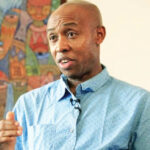Nigeria, despite being Africa’s largest economy, grapples with a staggering educational crisis – it harbours the world’s highest population of out-of-school children, with over 20.2 million youngsters deprived of formal education, as reported by so many sources. Astonishingly, despite primary education being officially declared free, approximately 26 per cent of primary school-age children remain out of school and nearly 35 per cent of those who manage to complete primary education fail to progress to secondary education.
The situation is dire, particularly in northern Nigeria, where the figures are even more alarming. Research conducted by UNICEF Innocenti-Global Office of Research and Foresight, suggested that 50 per cent of girls are denied access to education. Shockingly, only 61 per cent of children aged 6 to 11 attend primary school regularly, and merely 35.6 per cent of children aged 36 to 59 months have access to early childhood education.
Various studies have pinpointed economic and financial barriers as the primary catalysts behind this educational crisis. Many families simply cannot afford the cost of education for their children. Despite the Universal Basic Education (UBE) programme’s claim of providing free and compulsory education since its inception in 1999, the reality starkly contrasts with the rhetoric.
Parents find themselves burdened with the costs of school supplies such as textbooks, exercise books, uniforms, school bags, shoes, and sandals – essentials that should ideally be provided by local government education authorities. To exacerbate matters, some public schools in regions like Abuja levy school fees, rendering education inaccessible to numerous impoverished families. This, in part, explains why Abuja records a significant number of out-of-school children.
FG announces date to conclude ongoing fire service recruitment
FG disburses N103bn for basic health care provision fund
The question arises that where is the promised free and compulsory education? How many parents of out-of-school children have been held accountable for their inability to send their children to school? The sad truth is, very few, if any. Both the out-of-school children and their parents roam freely in Nigeria, a stark testament to the failure of enforcement. Well-intentioned intervention programmes have been rolled out over the years to address this issue, yet the numbers persistently soar. It is abundantly clear – if we genuinely desire to tackle this crisis, we must implement and enforce a robust policy of free and compulsory education in Nigeria. This entails not only proclaiming it as a right but also ensuring that the necessary resources are provided to facilitate its realisation.
The urgency for transformation is palpable. Our children’s entitlement to education is non-negotiable; it is enshrined as their fundamental right. Thus, the onus falls upon us to guarantee its fulfillment. We cannot afford to delay any longer. Every passing moment without action perpetuates injustice and widens the chasm of inequality. It is incumbent upon us to bridge this gap, to pave the way for a brighter future for all Nigerian children. Let’s seize this moment, let’s prioritise education, and let’s ensure that no child is left behind. The time for change is now, and our children’s futures hang in the balance.
Tijjani Mukaddas wrote from Vanderbilt University, Tennessee, United States. [email protected]

 Join Daily Trust WhatsApp Community For Quick Access To News and Happenings Around You.
Join Daily Trust WhatsApp Community For Quick Access To News and Happenings Around You.



